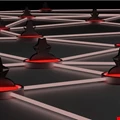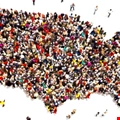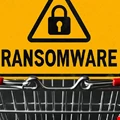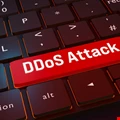Infosecurity News

CISA Issues Advisories on Critical ICS Vulnerabilities Across Multiple Sectors
The US CISA has issued advisories for Industrial Control Systems vulnerabilities affecting multiple vendors including Johnson Controls, ABB, Hitachi Energy, and Schneider Electric

Russia Linked to New Malware Targeting Email Accounts for Espionage
Russian military intelligence-linked hackers are using a new malware called “Authentic Antics” to secretly access Microsoft cloud email accounts, the UK's NCSC reports

New “LameHug” Malware Deploys AI-Generated Commands
Ukraine’s CERT-UA has identified a new AI-powered malware, dubbed “LameHug,” which executes commands on compromised Windows systems in cyber-attacks, targeting the nation’s security and defense sector

AI-Generated Lcryx Ransomware Discovered in Cryptomining Botnet
A cryptomining botnet active since 2019 has incorporated likely AI-generated Lcryx ransomware into its operations

Retail Becomes New Target as Healthcare Ransomware Attacks Slow
Comparitech found that healthcare ransomware attacks rose 4% in H1 2025, a significantly lower rate than the cross-sector average of 50%

Malware-as-a-Service Campaign Exploits GitHub to Deliver Payloads
A new malware campaign uses GitHub to deliver payloads via Amadey botnet, bypassing email distribution

AI Cloaking Tools Enable Harder-to-Detect Cyber-Attacks
Cybercriminals are using AI cloaking tools to evade detection, disguising phishing and malware sites

One in 12 US/UK Employees Uses Chinese GenAI Tools
Harmonic Security raises the alarm as one in 12 British and American employees uses Chinese GenAI tools

Microsoft Exposes Scattered Spider’s Latest Tactics
Microsoft has reported Scattered Spider continues to evolve tactics to compromise both on-premises infrastructure and cloud environments

US Data Breaches Head for Another Record Year After 11% Surge
There were 1732 publicly reported US data breaches in the first half of 2025, according to the latest ITRC report

Most European Financial Firms Still Lagging on DORA Compliance
A Veeam survey found that 96% of financial services organizations believe their current levels of data resilience falls short of DORA compliance, citing major challenges

SquidLoader Malware Campaign Targets Hong Kong Financial Sector
A new malware campaign targeting Hong Kong finance has been identified, featuring SquidLoader to deploy Cobalt Strike Beacon

Pro-Russian Cybercrime Network Demolished in Operation Eastwood
A Europol coordinated operation has taken down key infrastructure used by pro-Russian hacktivist group NoName057(16), as well as a number of arrests

Over 5.4 Million Affected in Healthcare Data Breach at Episource
A data breach at Episource has exposed the personal information of 5.4 million individuals after attackers accessed systems for 10 days

Retail Ransomware Attacks Jump 58% Globally in Q2 2025
BlackFog found that publicly disclosed ransomware attacks on retail grew significantly in Q2 compared to Q1, with UK firms heavily targeted

Cloudflare Blocks Record-Breaking 7.3 Tbps DDoS Attack
Cloudflare highlighted a huge rise in hyper-volumetric DDoS attacks in Q2 2025, with attackers seeking to overwhelm defenses

Education Sector is Most Exposed to Remote Attacks
CyCognito research finds that a third of education sector APIs, web apps and cloud assets are exposed to attack

Co-op Aims to Divert More Young Hackers into Cyber Careers
The Co-op is teaming up with The Hacking Games to inspire pathways into ethical cybersecurity careers

MITRE Launches New Framework to Tackle Crypto Risks
MITRE has introduced AADAPT framework, a new cybersecurity framework aimed at mitigating risks in digital financial systems like cryptocurrency

Threat Actors Exploit SVG Files in Stealthy JavaScript Redirects
A new phishing campaign uses SVG files for JavaScript redirects, bypassing traditional detection methods



